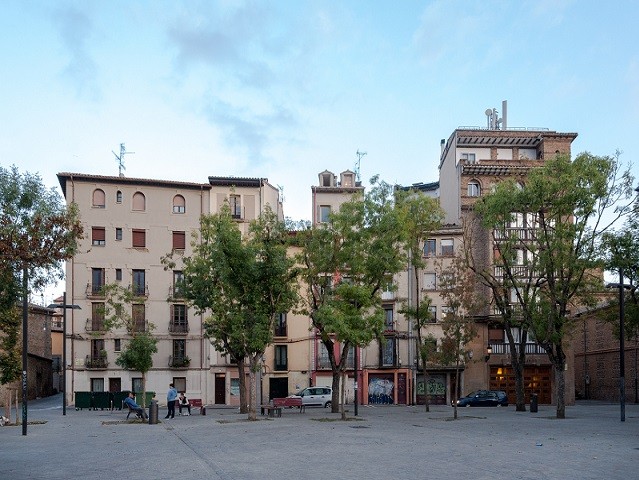Another round of smart and sustainable innovation in Pamplona
This year the Pamplona City Council launched the 2nd edition of the 'Smart Pamplona Lab' programme, an initiative that is part of the EU-funded STARDUST project. Results from this initiative will boost the performance of the Lighthouse City of Pamplona as a smart city both at a national and at a European level in terms of business innovation, promotion of public-private collaboration, and facilitation and implementation of new smart city solutions and services. Five pilot projects supported by the 'Smart Pamplona Lab' programme were presented on the 13th of November at a press conference by the Councilor for Strategic Government, Trade and Tourism, Ana Elizalde, and by the Director of the Pamplona City Council's Strategic Office, José Costero. With this newly minted edition, the Smart Pamplona Lab programme will continue to manage pilot test projects that possess a smart city approach in specific areas linked to energy efficiency, renewable energies, and sustainable mobility. These projects will be provided with different initiatives like trainings, technical support, business models, communication and networking. Through activities like the Smart Pamplona Lab, the city of Pamplona is working its way towards becoming a smart city with a clear commitment to improving the quality of life of its citizens and the provision of public services. The five projects The system proposed by 'i3i Ingeniería Avanzada, S.L. Cordovilla' is to collect data in real time at most used parking areas via sensors and a wireless communication platform. This information will be used for a subsequent behavioural study and will be disseminated to citizens using third party applications such as the STARDUST City Platform of Pamplona. 'MendiTech' project, proposed by a group of entrepreneurs from Pamplona, will monitor the movements of the vehicles within the city and create more sustainable and safer intelligent city models in the future at a massive scale. Their system will provide information such as counting, speed, acceleration, directions, number of axles, and weight of vehicles in motion. The 'Kunak Green Move' project will introduce an air quality measurement technology to evaluate sustainable mobility actions and impacts of the daily habits in relation to the air quality at a local scale. The data produced by this analysis can be used in awareness-raising campaigns at local level. The Barcelona-based company 'Defcon8 S.L.' aims to raise awareness of efficient water consumption and will offer value proposals such as statistical processing of hot and cold water flow and temperature data, the possibility of setting a daily consumption target, and a meter of total daily expenditure or a leak detection device. All of these will be done using a "smart water flow monitor", an energy efficiency solution that will provide the users with real time and internet based feedback on the water consumption that they are doing at that moment. The Smarth-Prop proposal from Greece will introduce an intelligent self-learning and self-adjusting solution based on artificial intelligence algorithms to automate the detection of energy consumption behaviour, the thermal modelling of a building, the prediction and optimisation of energy demand, and which can generate savings in building expenditure of up to 40%. The solution consists of a thermostat system that can implement the remote control of multi-zone heating or cooling systems through sensors connected by Wi-Fi. The owners of the different projects are now working with the relevant Municipal Departments in order to install their respective systems and start their testing in real, urban, environments. It is expected that the pilot testing will be finalized by mid-2021. Results of the projects will be shared with the STARDUST community. Click here to watch the video about the five projects.
Keywords
sustainable innovation, smart city, lighthouse, sustainable mobility, energy efficiency, renewable energy, wireless, ubran, environment



